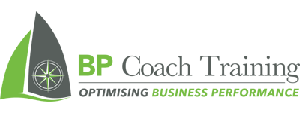There’s a movement afoot that says year-end performance reviews don’t provide the frequency of feedback people require to understand and act on their professional development needs early enough. Ditch the year-end performance review, and instead provide regular, on-the-spot feedback, goes the thinking.
While I ascribe to the idea that feedback should come far more frequently than once or twice per year, I think there’s a built-in assumption that such feedback is largely about critical suggestions intended to correct a behavior or mindset.
But what if managers were to instead proactively seek out opportunities to praise their people even more often than they call out their weaknesses, mistakes, and development needs? What would be the impact on individual and team performance if people were more frequently acknowledged for their positive contributions to the company–and didn’t always have to look over their shoulder to see if their boss, or their boss’s boss, was waiting for them to slip up?
A recent article by Rabbi Jonathan Sacks, the former Chief Rabbi of the United Kingdom, tells the remarkable story of Lena Rustin, a woman who discovered–and deployed–the power of praise to positively transform behavior. Rustin, who passed away in 2004, was a speech therapist specializing in helping stammering children. She founded the Michael Palin Centre for Stammering in London, named after the popular British actor whose father suffered from a severe stammer.
Rabbi Sacks filmed Rustin’s work for a documentary he made for BBC television on the state of the family in Britain. He also interviewed some of the parents whose children she worked with. In his article, he describes Rustin’s unique approach to her work:
“Most speech therapists focus on speaking and breathing techniques, and on the individual child…Lena did more. She focused on relationships and worked with parents, not just children. Her view was that to cure a stammer, she had to do more than help the child to speak fluently. She had to change the entire family environment.”
“The answer, Lena discovered, was praise. She told the families that every day they must catch each member of the family doing something right and say so specifically, positively, and sincerely. Every member of the family, but especially the parents, had to learn to give and receive praise.”
“Watching her at work I began to realize that she was creating, within each home, an atmosphere of mutual respect and continuous positive reinforcement. She believed that this would generate self-confidence–not just for the stammering child, but for all members of the family. The result would be an environment in which people felt safe to change and to help others do likewise.”
Through his work filming Rustin, Rabbi Sacks realized she had discovered a solution not just for stammering, but for group dynamics as a whole. Writing a few years ago about the same experience, Sacks told the story of how Rustin’s praise-centered approach helped resolve interpersonal issues with his film crew:
“There had been tensions among the television crew with which I had been working. Various things had gone wrong and there was an atmosphere of mutual recrimination. After filming a session of Lena Rustin teaching parents how to give and receive praise, the crew started praising one another. Instantly the atmosphere was transformed. The tension dissolved, and filming became fun again. Praise gives people the confidence to let go of the negative aspects of their character and reach their full potential.“
What do you think about the power of praise to inspire and motivate people at work? Please share your thoughts in the comments.
Thank you for reading! Please reach out and connect or follow me here on LinkedIn.
Photo of Lena Rustin helping a child: https://www.stammering.org/speaking-out/article/lena-rustin-tributes



